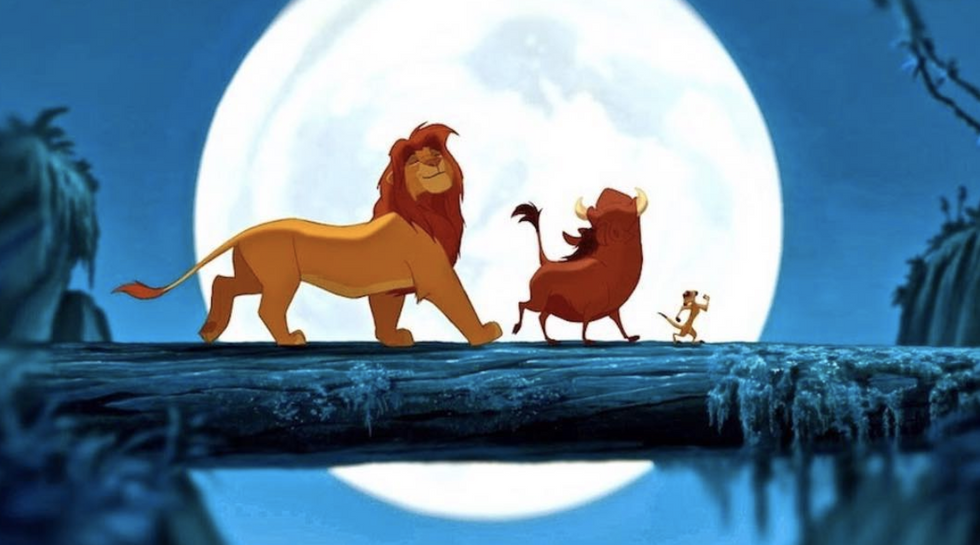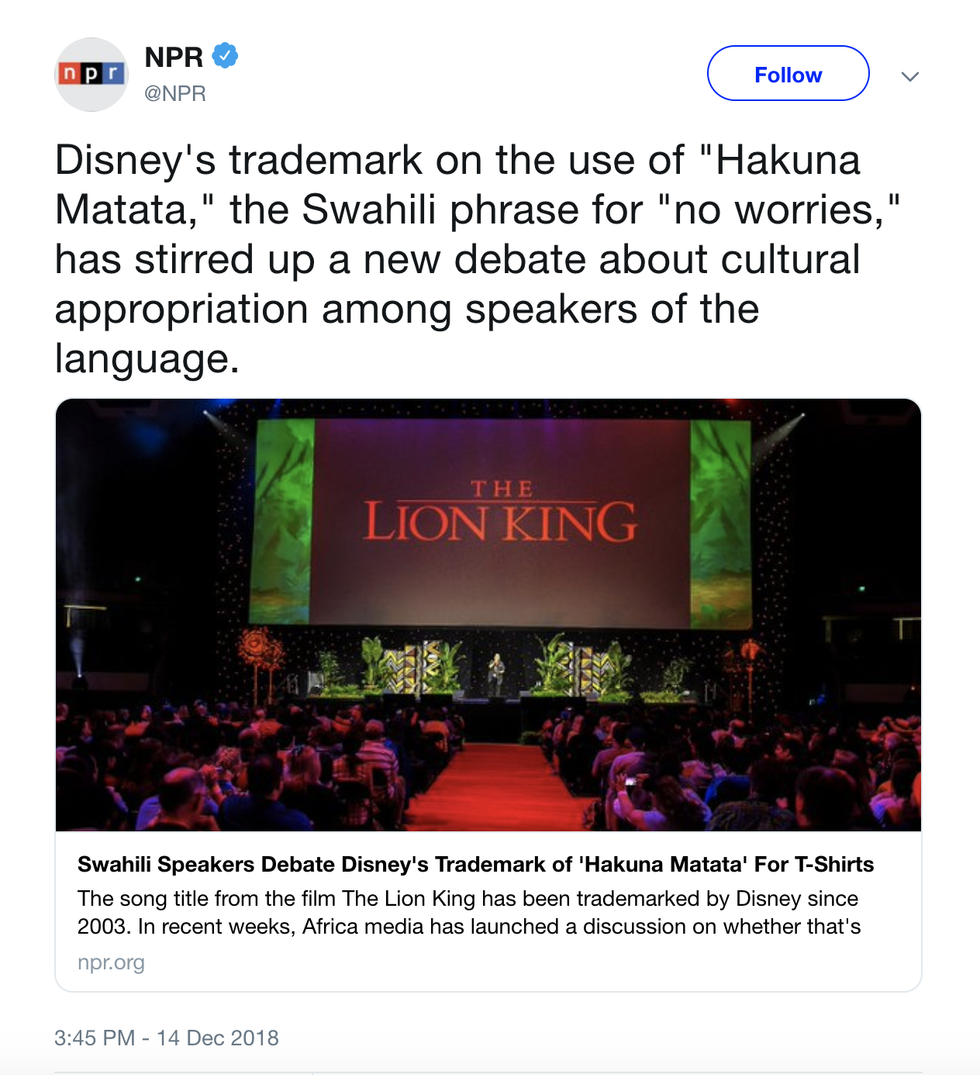After the release of "The Lion King" in 1994, Disney first applied a trademark to "Hakuna Matata", a Swahili saying meaning "no worries" that is spoken in many countries throughout Eastern Africa and also the name of a song from the motion picture. Although Disney's trademark on the Swahili catch-phrase has been under the radar, the new excitement surrounding the release of the live-action "Lion King" in 2019 has called attention to Disney's controversial actions. Petitions are currently being spread throughout the internet that urges Disney to retract their copyright label to "Hakuna Matata", a phrase that has existed way before Timon and Pumba came along.
Many who support the online petitions argue that Disney's copyright on "Hakuna Matata" exploits a culture that is not theirs. Does Disney, or any other corporation, have the right to trademark a language that Disney is not responsible for creating? Many Swahili speakers have voiced their complaints by signing the petition after they were unable to print shirts and other items with "Hakuna Matata" on it. Thus, they claim that Disney's copyright is outright theft on their culture, language, and identity. Additionally, many argue that this trademark devalues the richness of Swahili language, utilizing it for economic gain and appropriation.
However, others disagree with the online petitions circulating the Internet, including Liz Lenjo, a Kenyan entertainment and intellectual property attorney. Lenjo claims that Disney's copyright "does not steal anything" from Eastern African culture. Furthermore, she blames the overreaction from those on the Internet and social media. Additionally, it seems that a majority of those who are outraged by Disney is not of Eastern African ethnicity, so how do their opinions matter? Can people argue about cultural appropriation when their culture is not being appropriated?
Amidst all the controversy, Disney has not commented on anything regarding their problematic trademark or the online petitions, so it is uncertain how this all will play out. Yet, with the release of the live-action "Lion King" in 2019, this will probably not be the first time Disney will be confronted for problematic representation and copyright of African culture. Although this is not Disney's first time being accused of cultural appropriation for their films, especially the ones released in the 1990s like Aladdin, Disney has improved their techniques of producing motion pictures that apply to different cultures throughout recent years. For example, Coco, a Pixar motion picture that depicts the Mexican holiday of Dios De Los Muertos not only contained a good storyline but also an accurate representation of Mexican culture.
I do not think the underlying message of these petitions is that "The Lion King" is cultural appropriation, but rather the copyright of "Hakuna Matata" perpetuates the feeling that Disney, an American corporation, is exploiting a piece of Eastern African culture and language. Both arguments that support or oppose the online petitions are fair perspectives, but everything depends on awaiting for Disney's response.
Click here for the link to the online petition.
























